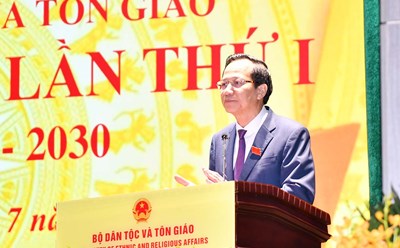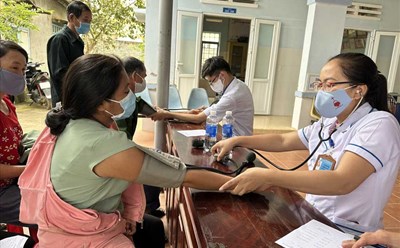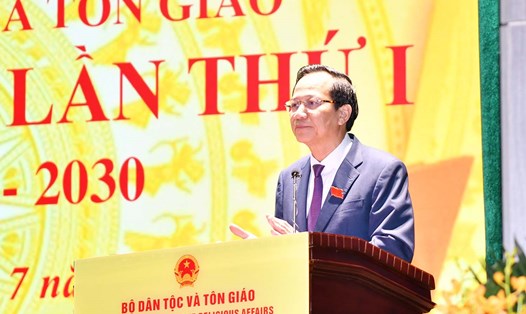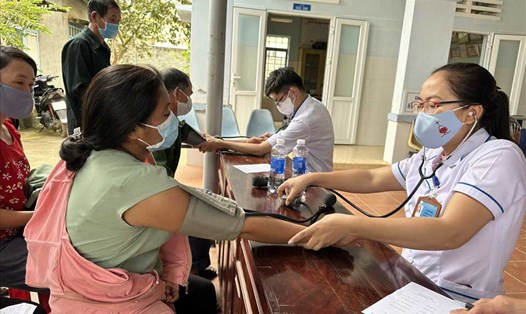Vietnam is a common home of 54 ethnic groups living together in harmony, long-standingly attached and nurturing the aspiration for a prosperous future.
The country's cultural, belief and religious picture is also very diverse, with 40 recognized religious organizations, nearly 28 million followers, more than 200,000 dignitaries and officials and about 30,000 places of worship spread across the country.
These figures not only demonstrate prosperity, but also clearly reflect the consistent policy of the Party and State in respecting and ensuring freedom of belief and religion - one of the basic rights of man.
In response to urgent requirements from practical management, on June 11, 2025, the Government issued Decree No. 124/2025/ND-CP, regulating decentralization, delegation of authority and clearly defining the authority between two levels of local government in the field of ethnic, religious and religious work.
The Decree officially takes effect from July 1, 2025, marking a new step in the process of innovating State management for a sector that is sensitive and has many characteristics.
The Decree emphasizes the need to clearly define responsibilities between authorities at all levels, in order to increase proactiveness and flexibility for localities in developing and implementing policies suitable to the cultural and social characteristics of each region and each community.
In particular, the Decree promotes the integration of ethnic, religious and belief policies into local socio-economic development planning, ensuring close and consistent linkage in sustainable development goals, instead of considering these as separate and separate policy areas.
Not stopping there, the Decree also contributes to removing long-standing shortcomings in the administrative system, such as overlapping functions, distributing resources, or shifting responsibility between levels and sectors - bottlenecks that have degraded the effectiveness of policy implementation in practice.
At the same time, the goal is to comprehensively innovate the thinking and legal framework on ethnic and religious work, ensuring synchronization and modernity, respecting religious freedom and improving the quality of life of people in disadvantaged areas.
According to Mr. Vu Hoai Bac - Head of the Government Committee for Religious Affairs (Ministry of Ethnic Minorities and Religions), it is necessary to simultaneously deploy groups of strategic solutions to improve management capacity in the field of ethnicity, beliefs and religion, in accordance with new requirements and context.
Accordingly, continue to improve institutions, policies and laws, ensuring consistency, feasibility and closeness to the reality of each locality.
Improve the quality of staff, especially at the grassroots level - where people directly work, handling complex and sensitive issues. This is not just a story about professional capacity, but also a requirement for the ability to grasp the situation "from early on, from afar".
Promote the application of information technology and digital transformation, build a comprehensive, updated national database system on ethnic groups and religions to serve policy making work.
Promote the role of prestigious people, religious titles, village elders, village chiefs... as trusting "beds" between the government and the people. Dialogue, listening and respecting opinions from the grassroots will be the key to building trust and consensus...






